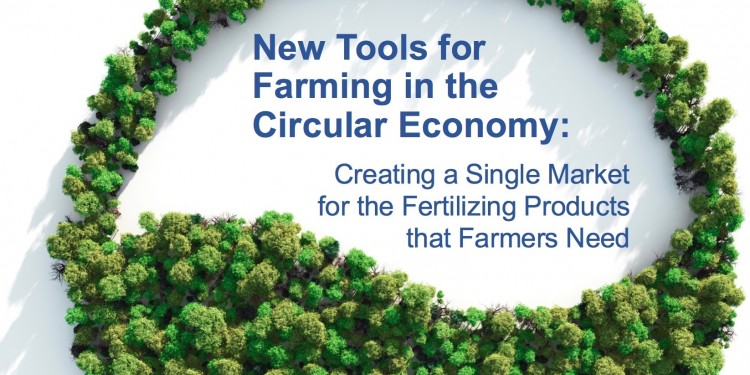New Tools for Farming in the Circular Economy
Policy-makers and stakeholders gathered in the European Parliament to discuss the recently updated Fertilisers Regulation underlining that the creation of a single market is crucial in order to provide businesses and farmers with the variety of tools needed to achieve a circular economy.
Jan Huitema MEP chaired on the 26th of May the conference entitled “New Tools for Farming in the Circular Economy: Creating a Single Market for the Fertilising Products that Farmers Need?” drawing attention to the need for policies that foster innovation and investment for farmers. It was emphasised that the European Parliament welcomes the updated Regulation and look forward to discussing the dossier.
Eric Liégeois from the European Commission outlined that the Fertilisers Regulation proposal aims to make fertilisers more sustainable by ensuring cleaner primary raw materials, and ensuring strict recovery rules for secondary raw materials enabling them to substitute safely primary materials. He underlined the need for collaboration between research, economic operators and regulators to enlarge the toolbox and populate more sustainable fertilising practices that farmers need. The Regulation was also welcomed by the Dutch Presidency, which highlighted its importance but also the challenges that lay ahead. It was pointed out that “the devil is in the details” underlining that there are many questions to be tackled such as contamination and harmonisation in order to reach a consensus among all Member States.
Paul Mullins, Vice-President of the European Biostimulants Industry Council, explained that “biostimulants aim to stimulate plant processes to use nutrients more efficiently and make plants more vigorous to withstand harsh growing conditions”. The industry is leading globally but it was said that the market for biostimulants is currently fragmented along national lines depriving farmers of access to these tools on equal terms. It was also said that the industry faces increased costs and uncertainty for investment, necessitating an EU regulation to provide a solid foundation for continued leadership and job creation.
Claude Alabouvette, Scientific Advisor, AGRENE further highlighted that there is an absence of EU regulation for microorganisms, which limits the use of growth promoters. It was said that microorganisms can help promote growth, increase yields, and help plants resist abiotic stresses. Even though the Regulation intends to create a single market it was underlined that there is still no consensus on microorganisms, which are difficult to classify.
Representing the voice of young farmers Alice Cerutti, Vice-President of the European Council of Young Farmers emphasised that “farmers are in need of tools and knowledge transfer as well as a better understanding of the benefits that can be reaped from using certain types of fertilisers”. It was also stressed that it must be ensured that the fertilisers are safe both for farmers and consumers.
The debate further highlighted the need for transparency, traceability, labelling as well as certifications to ensure reliability. The potential of the Regulation and the pivotal role that innovation plays in agriculture were reiterated throughout the event, highlighting the need for innovation-friendly policies that are future-proofed in order to keep up with the rapid pace of innovation.



